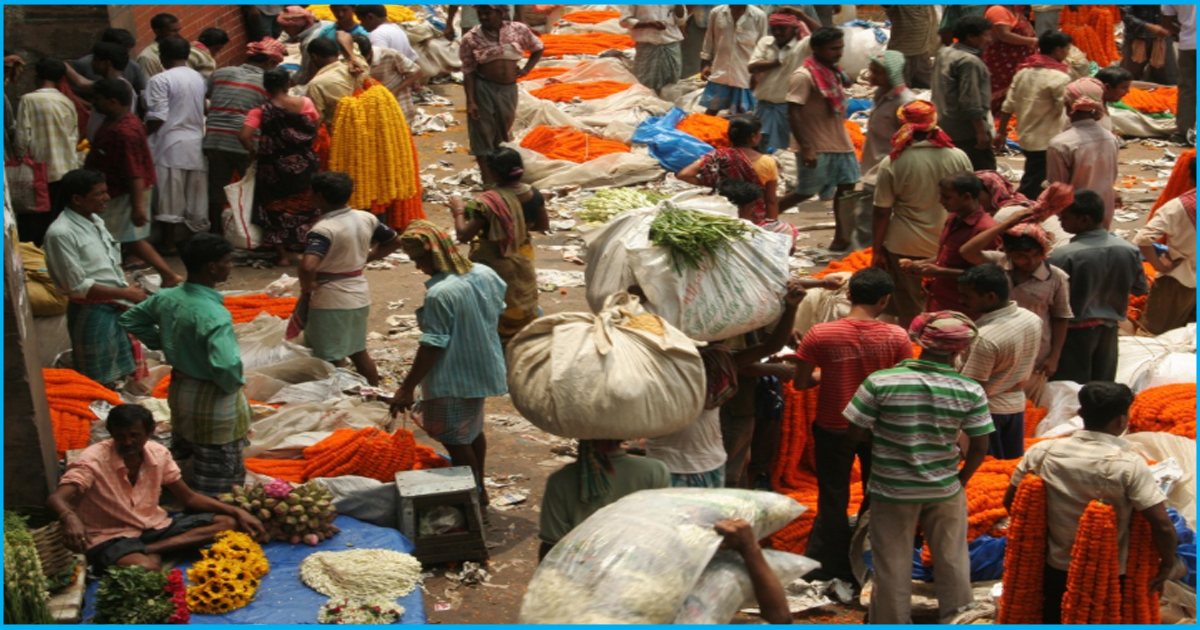
India Ranks 158th In The World Human Capital Index: World Bank
5 Oct 2018 5:04 AM GMT
Recently, a study was conducted by the best known medical journal, The Lancet, on the Human Capital index of 195 countries in the world. India ranks 158th in the world according to this study, regarding education and healthcare. This study was conducted by The World Bank to track and motivate investments in health and education sector.
India’s ranking in comparison to its neighbouring countries
Our neighbouring Asian countries have performed better than India regarding human capital according to the study. China bagged the 44th rank while Sri Lanka, Bhutan, Nepal and Maldives have been ranked 102nd, 133rd, 156th and 116th respectively.
However, we have managed to perform better than Pakistan (ranked 164), Bangladesh (ranked 161) and Afghanistan (ranked 188).
As per the report published by The Lancet, India has improved its position from the year 1990, in which the last study was undertaken. However, India’s place in the survey conducted during 1990 was 162, whereas it takes the 158th position in the current survey, recording a 4-point rise over a span of 26 years. More substantial improvements in expected human capital appear to be associated with faster economic growth, indicating that India’s economic growth would be slow considering its improvement in human capital since 1990.
About Human Capital
Human capital is a collection of various intellectual assets like knowledge, talents, skills, abilities, experience possessed by individuals or group of individuals in a population along with physical capital such as buildings, equipment and other tangible assets, contribute to economic productivity. These resources from people represent a form of wealth which can be directed to accomplish the goals of the nation. Investment in human capital development is connected to education and healthcare of the population and is considered to be an important detriment of economic growth.
This study aims to understand the link between investing in people and economic growth, to accelerate financing for human capital investments. A basic input needed for this aim to be fulfilled an internationally comparable index of human capital, which currently does not exist. This study has sought to fill the global measurement gap.
Methods used by The Lancet to conduct the study
In the study, a period measure of the expected human capital was generated, which is defined as the expected lifespan of each birth grouping, from ages 20 to 64. This grouping was adjusted with the educational attainment, quality and functional health status, using time-period, age and sex-specific rates from 1990 to 2016.
The educational attainment was estimated based on 2522 censuses and household surveys and 1894 tests conducted among school-aged children, covering 4345 location subjects (mathematics, science and reading) across 295 unique locations (132 countries and 163 subnational locations).
The functional health status was based on health conditions such as anaemia, cognitive impairment, vision loss, hearing loss, and infectious disease aggregations including HIV/AIDS, tuberculosis, malaria, neglected tropical diseases and several other common infectious diseases, which were taken from the Global Burden of Diseases, injuries and Risk factors Study2016 (GBD 2016). Also, the mortality rates specific to location, age and sex were taken from GBD 2016.
Using the four dimensions- educational attainment, learning, functional health, and survival, an indicator of expected human capital that is sensitive to recent investments in health and education was constructed. As per the report by The Lancet, expected human capital is calculated by exposing a hypothetical birth group to educational attainment, learning, functional health status, and mortality rates specific to the time period, age, and sex. The measure is analogous to health-adjusted life expectancy.
Association between expected human capital and gross domestic product
On examining the correlation between the change in expected human capital and the corresponding change in Gross Domestic Product (GDP) per capita from 1990 to 2016, it was found that larger improvements in expected human capital from 1990 to 2016 were also associated with greater GDP growth over the same period. Although not a formal causal analysis, these differences suggest that both levels of human capital are associated with economic performance and improvements in the production of human capital is associated with faster economic growth.
Result of the Study
The study quantifies levels of human capital in 195 countries from 1990 to 2016, generating a ranking of countries and highlighting huge variations in the production of, and progress in building, human capital across countries. Human capital—educational attainment, learning, functional health, and survival—in 2016 was highest in Finland, Iceland, Denmark, the Netherlands, and Taiwan (province of China), and lowest in Mali, Burkina Faso, Chad, South Sudan, and Niger. Over the past 25 years, progress has been slow in selected countries that started at a high baseline, such as the USA, but perhaps most important progress has also been slow in countries with historically low human capital, such as the bottom five countries in 2016. At the macro level, countries that have improved the production of human capital tend to have been more successful in fostering economic growth.
“Our findings show the association between investments in education and health and improved human capital and GDP — which policy-makers ignore at their own peril,” said Dr Christopher Murray, director, Institute for Health Metrics and Evaluation (IHME) at the University of Washington.
“As the world economy grows increasingly dependent on digital technology, from agriculture to manufacturing to the service industry, human capital grows increasingly important for stimulating local and national economies.’’
Also Read: India Slips Two Places, Ranks Just One Place Above Pakistan In 2018 World Press Freedom Index
 All section
All section













